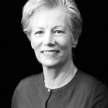Review of 'The Testaments' by Margaret Atwood
Master Puppeteer of Dystopian Theater

“Praise be!” It has been 34 years since the controversial, and even banned novel, The Handmaid’s Tale was published (1985), and on September 10, 2019, Margaret Atwood published its sequel, The Testaments. Her latest novel has already garnered critical praise and was named to the shortlist for the Booker Prize.
In The Testaments, her characters bear witness to the inevitable corruption of power in the totalitarian regime of Gilead. Extreme societies tend to end extremely, and as phrased succinctly by Gilead's Aunt Lydia: “In time like ours, there are only two directions: up or plummet.”
The Handmaid’s Tale introduced us to the country of Gilead—a nation based on strict theocracy, and though the interlude has been long, the final act of the play is The Testaments; in which we observe the increasingly corrupt machinations of a state, or perhaps a twisted royal court, which hasn’t as yet recognized its internal wounds and is bleeding away the strength of its original “truths.”
Margaret Atwood, born in Ottawa, Canada in 1939, knew by the age of 16 that writing would be her profession. Atwood graduated in 1961 with a Bachelor’s degree in English from Victoria College in the University of Toronto, and in 1962, received a Master’s Degree from Radcliffe College, Cambridge, MA. In 1961, she won the E.J. Pratt Medal for her book of poems, Double Persephone. Atwood has also been a writer of feminist works such as The Edible Woman, published in 1969.
As a novelist, Atwood is a master puppeteer of dystopian theater, pulling the strings of character and scene on a macabre stage of her choosing. But her repertoire is not limited by time nor subject—she’s exquisitely adept at her craft—a frankly stunning career of writing—not only of speculative fiction like The Handmaid’s Tale and the MaddAddam Trilogy, but with novels such as Alias Grace, based on the true story of an infamous double murder in Canada during the nineteenth century.
Her latest novel, The Testaments, is told in an epistolary style via three points of view: Aunt Lydia, arguably the most powerful woman in Gilead; Agnes, a young coming-of-age woman in Gilead—a perilous journey in this male dominated sphere; and Daisy, a teenager living in Canada, who is everything that Agnes is not—but with a secret, and infamous, past.
Atwood's delicious character development is especially effective with Aunt Lydia, a central figure in The Handmaid’s Tale. Now in The Testaments, we see her fleshed out, discovering who she was before the rise of Gilead. In a reflective passage by Aunt Lydia, she asks herself:
“How will I end? I wondered. Will I live to a gently neglected old age, ossifying by degrees? Will I become my own honored statue? Or will the regime and I both topple and my stone replica along with me, to be dragged away and sold off as a curiosity, a lawn ornament, a chunk of gruesome kitsch?
Or will I be put on trial as a monster, then executed by a firing squad and dangled from a lamppost for public viewing? Will I be torn apart by a mob and have my head stuck on a pole and paraded through the streets to merriment and jeers? I have inspired sufficient rage for that.”
Atwood’s character Agnes, a young woman of Gilead, grapples with the twists and turns of political and social intrigue: “And this is not heaven. This is a place of snakes and ladders, and though I was once high up on the ladder propped against the Tree of Life, now I’ve slide down a snake.”
As the story unfolds, we are introduced to the character of Daisy, a teenager trying to unearth her mysterious past, finding herself vulnerable and confused as she parses her fate: “The world was no longer solid and dependable, it was porous and deceptive.”
Atwood leads us to the conclusion of this terrifying fictional world of Gilead, but as the curtain falls and the crowd disperses from the theater, what real world do we encounter through the exit doors?
In times of turmoil, we humans rush to elusive havens advertising peace and prosperity. But we must be on guard—perhaps the carny at the gate is simply fooling us with a ‘switch and bait’ in which we give away hard won freedoms for false promises. A timely and poignant line from The Testaments: “How much of belief comes from longing?”
K.E. Lanning, author of the climate fiction novels in The Melt Trilogy:

About the Creator
K.E. Lanning
Author of commercial literary and speculative fiction. www.kelanning.com, @kelanningauthor, https://www.facebook.com/KELanning1/ https://www.instagram.com/kelanningauthor/







Comments
There are no comments for this story
Be the first to respond and start the conversation.